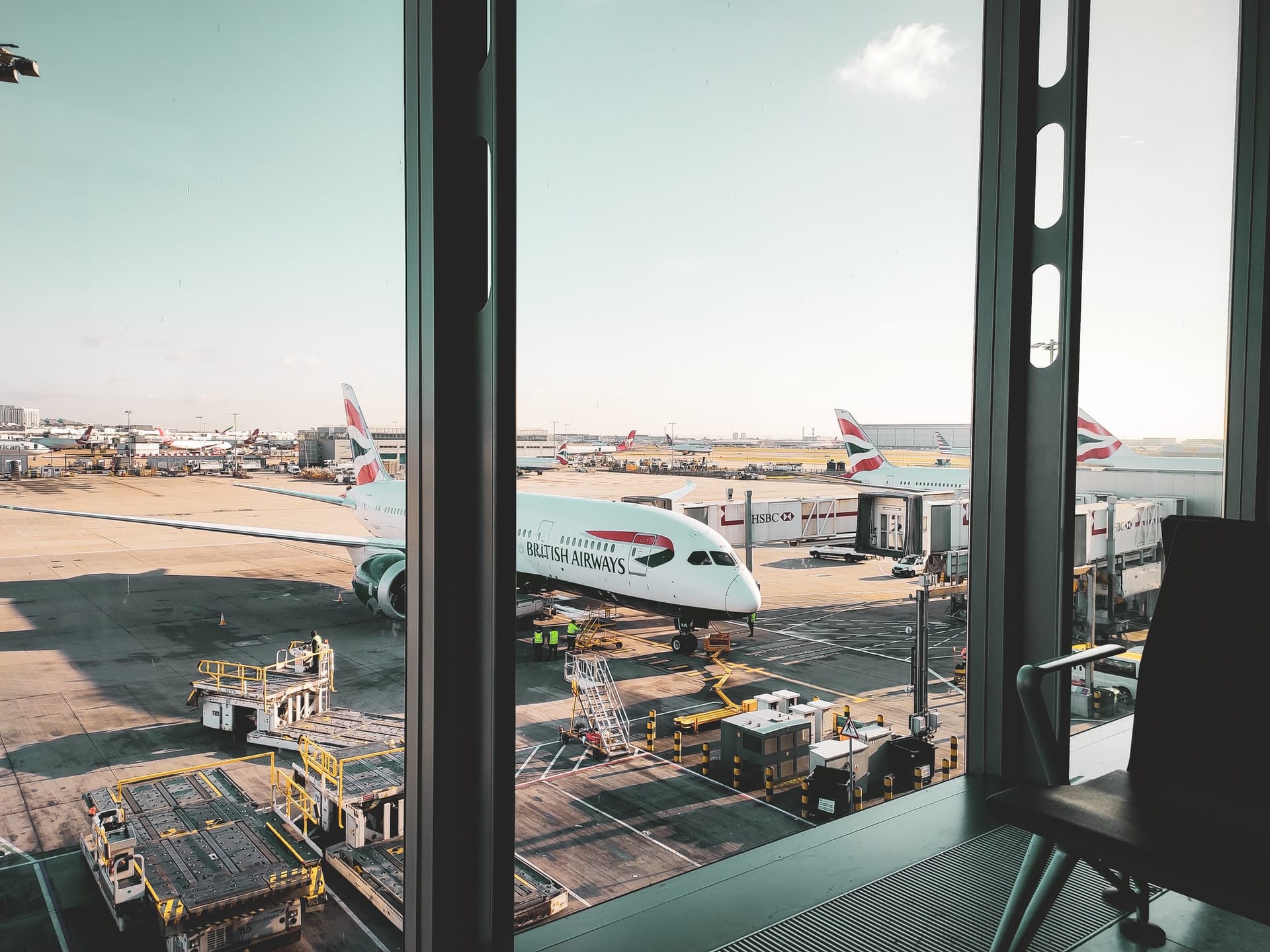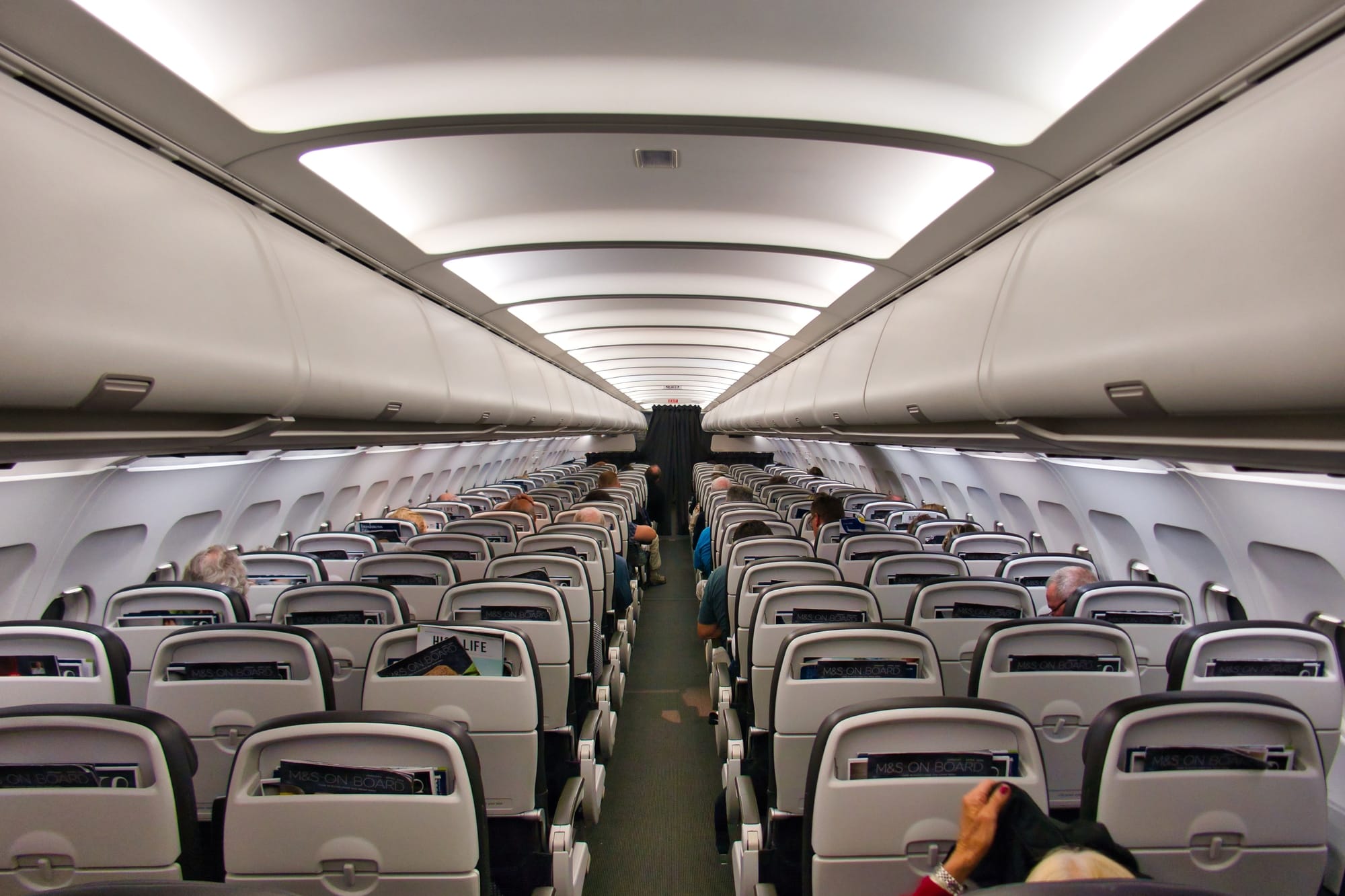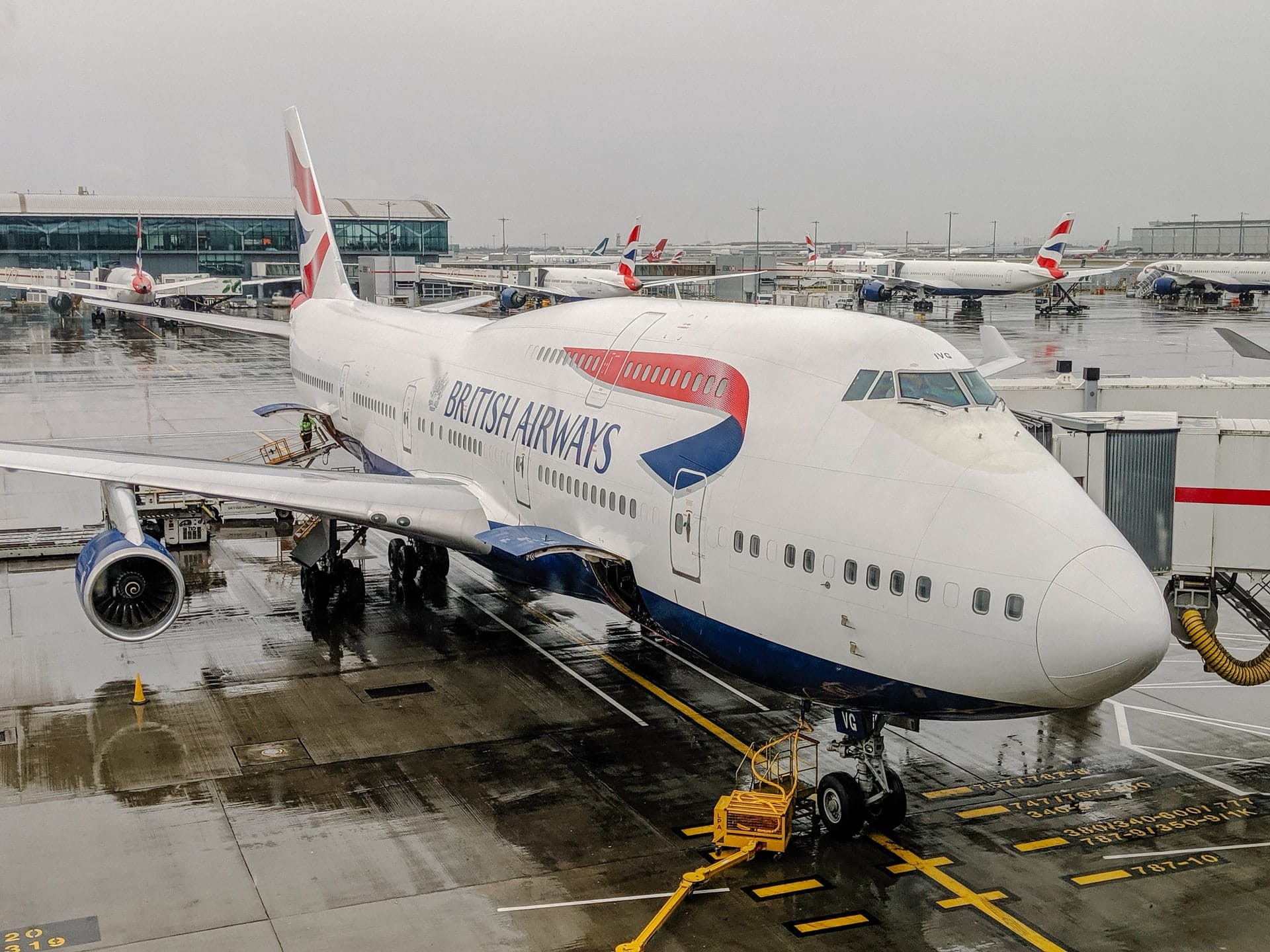If I ask you which airline is the most popular in the UK? Or which airline is among the world's best airlines? What name pops up in your head? I'm pretty sure you're thinking about British Airways.
British Airways is a full-service global airline, offering year-round low fares with an extensive global route network flying to and from centrally-located airports. British Airways operates more than 280 aircraft serving over 170 destinations worldwide.
The story of British Airways starts from the historic merger that took place nearly four decades ago. In 1974, British Overseas Airways Corporation and British European Airways merged to form British Airways.
From there onwards, British Airways observed exponential growth. Currently, British Airways has around 40,000 employees. In 2021, British Airways generated revenue of 3.7 billion British pounds which was four times less than it used to generate before COVID-19 but still, it was enough to keep the airlines going.
British Airways has to stay agile and adaptable to changing needs, operating in an industry full of competition and changing technologies. As a leading international Airline, British Airways faces several kinds of challenges that can be operational, economic, or political.
This British Airways PESTLE analysis will study some of the leading factors that impact British Airways' operations.
Before I start with the PEST analysis, I'll explain what PESTLE analysis is. The acronym PESTLE stands for Political, Economic, Social, Technological, Legal, and Environmental. These are the macroeconomic factors that can affect a company's performance.
PESTLE analysis is the perfect tool to analyze the impact of the macroeconomic variables mentioned above on a company. This tool helps in making long-term plans to attain growth in the future and create strategies to maximize the market share.

Political Factors Affecting British Airways
There are plenty of external factors that impact a business; political factors are one of them. A successful manager can see ahead of the curve. To make a company grow, its managers should know what impact government policies will have on the company.
Like any other company, British Airways also gets affected by the change in government policies. Recently after the Russian invasion of Ukraine, Russia banned UK flights from using Russian airspace in retaliation to the sanctions which were imposed by the UK on Russia.
All flight operations of British Airways in Russia also came to a halt. This entire political scenario will cause a drop in the market share of British Airways. It will also increase the cost of operations since British Airways can't use the Russian airspace, so they will have to look for alternative routes.
Government policies can sometimes cause actual discomfort between the government and a company. A similar scenario was created between the government and British Airways back in 2015; when British Airways demanded a third runway at London's famous Heathrow airport, the conflict arose.
After observing some government delays, British Airways boss Willie Walsh threatened the government to move his business out of the UK. A tense situation was created between the government and British Airways; later, their relationship improved with time.
Economic Factors
In PESTLE analysis, E stands for Economic factors. Understanding these factors is essential in making wise decisions and guiding your company to greater heights. This section of the PESTLE analysis will discuss how economic factors affect British Airways.
At the start of 2020, the number of COVID-19 cases increased rapidly in the UK. To prevent its spread, the government imposed lockdowns. Due to COVID-19, British Airways experienced significant financial losses as its economic activity declined.
During COVID-19, British Airways suffered an annual loss of £6.4 billion. This loss was not only incurred by a decrease in passenger revenue; it also occurred due to expensive fuel and currency hedges as the pound experienced historic depreciation during the pandemic.
Fluctuation in fuel prices also has a direct effect on the airline industry. Lower fuel prices will result in high-profit margins, improving the company's financial position. For example, back in 2016, lower fuel prices increased the earnings of British Airways by 65%.

Socio-Cultural Factors
Every company operating has to keep a close eye on the social factors. To function in society, a company must be aware of consumer choices, upcoming trends, and demographic changes in society.
Discussion about airfares is endless. When trips are planned, the first thing people look at is airfare. Cheaper plane tickets attract travelers immensely since people don't want to spend extra money on air tickets.
Knowing this mindset of people, British Airways decided to reduce the legroom of its planes and add extra seats to offer cheaper tickets and compete with low-cost carriers.
Another social factor, globalization, has impacted the business strategy of British Airways. Over the years, the world has developed into a global village, promoting globalization can benefit any company.
Keeping this in mind, British Airways made an advertisement that showed cross-cultural communication between a flight attendant and a passenger. People loved this advertisement across the globe.
Moreover, customers' buying habits also play an essential role in determining the performance of British Airways in the market.
Buying habits of customers keep on changing; people might stop paying for a product that seems essential and start paying for products that seem highly unimportant.
In order to attain growth, businesses should monitor consumers' buying habits very closely, or else they might have to face the music just like British Airways did. Back in 2016, British Airways started charging for the food provided on the flights. British Airways took this step to increase its revenue.
British Airways might have assumed that people would have no problem paying up for the snacks during the flight. Still, this action proved to be very wrong as a significant decline was observed in the perception of British Airways passengers after this act.
Technological Factors
The technological factors in PESTLE analysis account for the latest technological developments that impact businesses across the globe.
In the growing technological phase, businesses need to adapt and implement technology.
British Airways used automation technology to collect post-flight feedback from the passengers. Such technology usage will save the cost of data collection; it will also provide a pathway for customers living in different parts of the world to connect with British Airways.
Technology is a tool that can help a business grow enormously. For example, engineers and scientists have been working on fuel-efficient engines for Cars, Boats, Bikes, and Planes over the years.
British Airways is also working on its fuel-efficiency program. The success of this program will be a breakthrough for the aviation industry. British Airways can cut down its fuel costs and maximize profits with fuel-efficient engines.
Moreover, the Internet has made things so easy for us. It has provided opportunities to businesses for online transactions and promotion.
Facilitating customers online and having an online presence can play a significant role in a company's success. Keeping the upcoming technological developments in mind, British Airways introduced its website where online bookings are made to facilitate passengers. This increases consumer satisfaction hence increasing brand loyalty.

Legal Factors
To operate in a society, a business must abide by laws. Therefore, legal factors can impact a business to a great extent.
The letter L in the word "PESTLE" represents all the legal factors that affect the business. This section will learn about the laws that can impact British Airways.
British Airways is subject to all aviation-related and country-specific regulations, including fairness, discrimination, and disability. Violation of any such law can result in heavy fines, even a ban in the worst-case scenario, which will damage the brand's image.
Companies are considered the guardians of their employees' and customers' data. There are several laws present to prevent a data breach. In 2018, a heavy fine of £20 was imposed on British Airways on data breach charges.
Through this charge, British Airways suffered a heavy financial loss and earned a bad name.
Lawsuits are never beneficial for the company. Plenty of time and money is spent in the process, and controversies are created, which can have long-lasting effects.
Some of the laws are imposed by the government, while some are self-imposed by the companies. For example, British Airways used to claim that if flights are canceled, refunds will be paid, but during COVID-19, that's not exactly what happened.
During the pandemic at some point, British Airways had to cancel flights. After the bookings got canceled, British Airways refused to give refunds to the customers due to which a lawsuit was filed against the airline.
The best advice we can give to big corporations is to avoid lawsuits and abide by the law because one case can destroy years of hard work.
Environmental Factors
This is the very last section of the PESTLE analysis. This section will discuss some of the environmental factors that impact businesses. Environmental factors account for ecological factors that shouldn't be ignored to achieve sustainable growth.
With the number of flights and aircraft carriers increasing each year, the environmental impact of the airline industry has now become a central concern for regulatory authorities around the world.
British Airways is considered a massive company in terms of revenue and employees. It is one of the best airlines in the UK, yet it has a very responsible attitude towards society and climate.
British Airways acknowledges the issue of global warming, and it is working to mitigate carbon emissions. For example, British Airways is the first airline that used sustainable fuel in its Jets, reducing carbon emissions by 80%.
Great importance is given to carbon emissions by British Airways and its parent company IAG. As a result, IAG has initiated a program, flightpath net zero. Under this program, IAG aims to bring carbon emissions to zero by 2050.
British Airways PESTLE Analysis: Final Thoughts
If you have reached this far reading this article, I am sure you are now aware of the external macroeconomic factors upon which the growth and performance of British Airways depend.
We learned in this article that there are so many factors affecting British Airways, yet British Airways performs consistently and is considered among the top British airlines.
In order to list down the external factors, we conducted a PASTEL analysis that provided us with a complete picture of the Political, Economic, Social, Technological, Legal, and Environmental factors affecting British Airways.
After reading this article, you now have insight into British Airways, and you also know the PESTLE analysis framework.
PESTLE analysis is an essential technique used in business to highlight the external factors affecting businesses to make strategies and plans for the future accordingly.
To develop a better understanding of PESTLE analysis, I would recommend all of you to have a look at some of the examples of PESTLE analysis.
And besides PESTLE analysis, in order to get a complete snapshot of both internal and external factors affecting British Airways, take a look at our British Airways SWOT Analysis.










